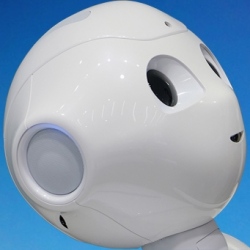
Samsung plans to establish 3 AI Centers in the U.K, Toronto, Canada and Moscow, Russia to strengthen the company’s AI capabilities and explore the potential of user-centric AI. Samsung Research also oversaw the creation of the new AI Centers in Seoul last November and in Silicon Valley.
With the addition of the three new AI Centers, Samsung Research will operate five AI Centers around the world.
Also, by securing global AI experts, Samsung Research plans to expand its number of advanced AI researchers to a total of about 1,000 globally by 2020.
The Samsung AI Center-Cambridge will be led by Andrew Blake, previously Director of Microsoft’s Cambridge Laboratory, and a pioneer in the development of the theory and algorithms that can make it possible for computers to behave as seeing machines.
With cooperation from distinguished experts in the field, such as Professor Maja Pantic (Imperial College), Samsung AI Center-Cambridge will play a pivotal role in advanced AI research for Samsung Research.
Key Principles Driving Samsung’s AI Vision
In its vision for AI, Samsung focuses on five core aspects to drive its research. These include AI that is: “user-centric,” realizing personalization through a multi-modal interface; “always learning,” through continuous self-learning from data; “always there,” as an ambient service; “always helpful,” with minimization of user intervention and response to requests; and “always safe,” ensuring user safety and privacy.
As they work around these focuses, the new AI Centers will leverage cutting-edge research environments along with the regional strengths of the researchers to carry Samsung’s AI capabilities to new heights.
In the coming years, Internet of Things (IoT) devices embedded with AI will generate a vast array of data that can provide fascinating insights about the lives of users, enabling them to take advantage of intelligent services optimized for their own personal preferences and behaviors.
How AI-enabled devices provide consumers with the most optimized options will be critical to the success of AI technology for the near future. To provide a user-centric ecosystem, Samsung aims to build an AI platform under a common architecture that will not only scale quickly but also provide the deepest understanding of usage context and behaviors, making AI more relevant and useful.
